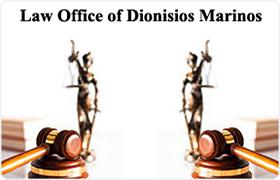Manhattan Beach Divorce & Family Law Lawyer, California
Sponsored Law Firm
-
 x
x

Click For More Info:
-
Law Office of Dionisios Marinos
5150 E Pacific Coast Hwy Suite 200 Long Beach, CA 90804» view mapDivorce & Family Law Committed To Client Satisfaction
Don't hesitate to call the Law Office of Dionisios Marinos in Long Beach, CA. We are committed to your satisfaction. Call us today.
800-846-1250
Michael Dittrich Shook
✓ VERIFIEDDivorce & Family Law
Since 1994 attorney, Michael D. Shook, has been specializing in family law, criminal defense and personal injury law cases.
Angela Rena Swan
✓ VERIFIEDCriminal, Divorce & Family Law, Family Law, DUI-DWI, Felony
Ms. Swan has been licensed to practice in the state of California since 2001 and helps people with Divorce & Family and Criminal law matters.
FREE CONSULTATION
CONTACTJohn M. Credell
Landlord-Tenant, Labor Law, Employment, Family Law, Contract
Status: In Good Standing
FREE CONSULTATION
CONTACTAnthony J. Ward
Business Organization, Estate Planning, Family Law, Personal Injury
Status: In Good Standing
FREE CONSULTATION
CONTACTPatricia Hinsberg Combs
Divorce & Family Law, Alimony & Spousal Support, Family Law, Child Custody
Status: In Good Standing Licensed: 27 Years
Edwin A. Barnum
Bankruptcy & Debt, Divorce & Family Law, Estate Planning, Personal Injury, Foreclosure
Status: In Good Standing Licensed: 15 Years
FREE CONSULTATION
CONTACT Dionisios Marinos Long Beach, CA
Dionisios Marinos Long Beach, CA Practice AreasExpertise
Practice AreasExpertise


